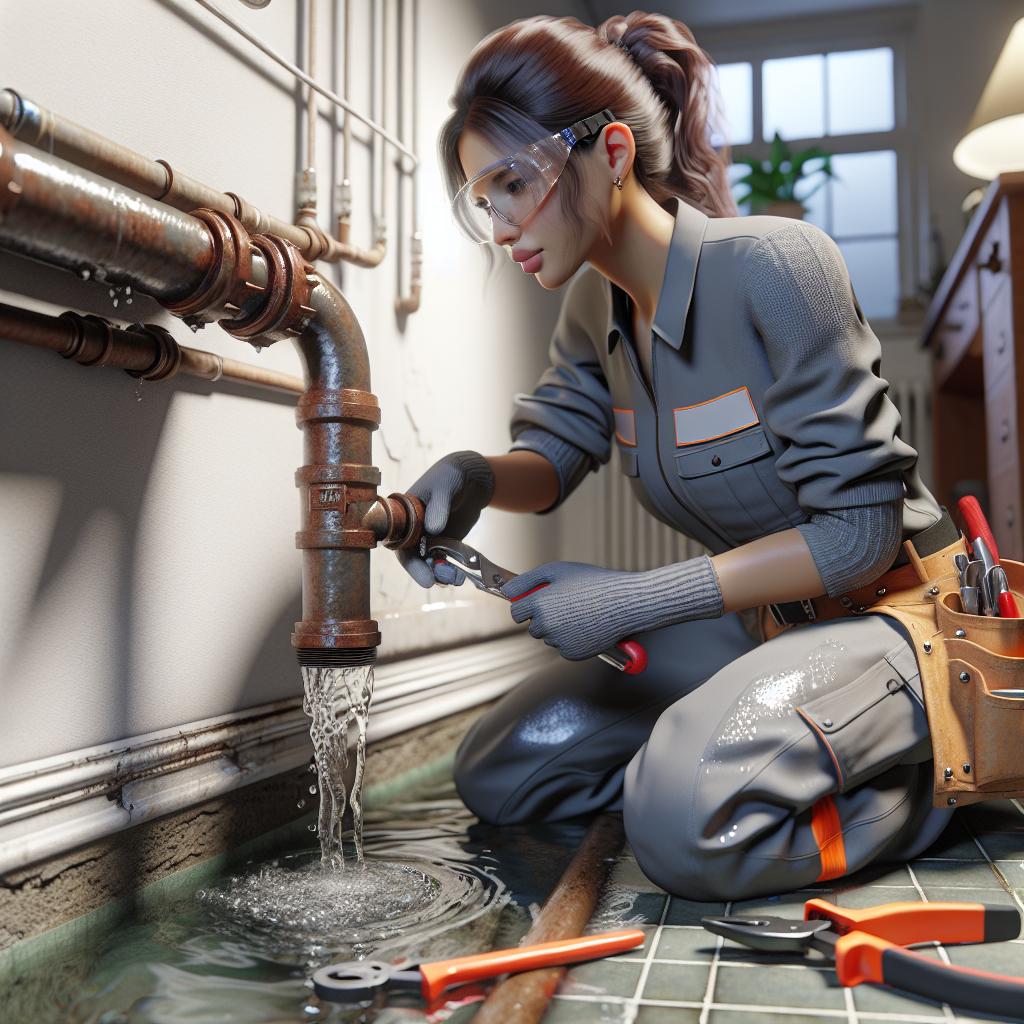Dodging the Drip: Essential Plumbing Secrets to Keeping Your Home Leak-Free
Nobody relishes the prospect of dealing with a plumbing problem, particularly when it’s something as seemingly minor yet potentially destructive as a water leak. A small drip can quickly escalate into a significant issue if left untreated, causing water damage and boosting your water bill. But, don’t fret! There are essential plumbing techniques at your disposal to keep your household water-tight. Let’s delve into the crucial secrets to keeping your home leak-free and avoiding those pesky drips.
Know the Common Culprits
Understanding the common causes of leaks is the first step in your drip-dodging journey. Some of the usual culprits include deteriorated seals, high water pressure, corroded pipes, loose water connectors, and drain clogs.
Deteriorated Seals
With time, the seals used in your plumbing system can deteriorate, leading to leaks. Regular checks and maintenance can help you dodge this problem.
High Water Pressure
While high water pressure might be excellent for your early morning shower, it’s not so kind to your pipes. Constant high pressure can wear them out, leading to leaks. It’s essential to regularly monitor your water pressure to ensure it’s at an optimal level.
Corroded Pipes
Pipes, especially metal ones, are susceptible to rust and corrosion. These processes can cause holes and cracks, leading to leaks. Regular inspections can help detect and deal with corroded pipes promptly.
Loose Water Connectors
Your appliances are connected to your water supply via connectors. If these become loose, leaks can occur. Regular checkups and tightening of water connectors can avoid water wastage.
Drain Clogs
Drain clogs put pressure on your pipes, causing them to possibly crack or leak. Regular drain cleaning can help prevent this problem.
Spotting the Signs
It’s not always apparent when you have a leak. Your pipes might be concealed behind walls or cabinets, or perhaps the leak is too small to cause visible damage initially. Here are important signs you can look out for to discern a leak in your home:
Unexplained Increase in Water Bills
One of the first signs of a hidden leak is an unexpected increase in your water bills. If you notice your water consumption going up, but your usage habits haven’t changed, it’s safe to suspect a leak.
Musty Smell or Mould
Leaks create a perpetually damp environment, which is perfect for mould to thrive. If you are dealing with an unexplained musty odour or see mould growing in certain areas of your house, consider this a sign of a possible leak.
Pools of Water
If you find random puddles of water forming in areas of your home that shouldn’t be wet, like your kitchen floor, laundry room, or basement, these might be a sign of a leaking pipe.
The Wonders of Regular Maintenance
Prevention is better than cure, and this adage applies perfectly when it comes to plumbing. Regular maintenance of your plumbing systems can go a long way in helping you dodge the drip.
Conduct a Water Meter Test
A water meter test is an easy way to determine if there’s a leak in your home. To carry this out, switch off all the water-based appliances in your home. Then check your water meter. If it’s still running, you likely have a leak somewhere.
Use Leak Detectors
Thanks to advancements in technology, you can install leak detectors in your home to warn you about potentially damaging leaks. These devices can detect small changes in humidity and temperature that may signify water leakage.
Regular Pipe Inspections
Conducting regular pipe inspections allows you to catch and handle issues before they escalate into more destructive leaks. Although you can do simple inspections yourself, having a professional plumber inspect your system periodically is the best way to ensure your home remains drip-free.
Use Plumber’s Tape
Also known as Teflon tape, plumber’s tape is a critical tool in preventing leaks at the joints of your pipes. When tightly wound around the pipe threads before connection, it helps to seal the joint, making it water-tight.
In conclusion, dodging the drip and keeping your home leak-free requires a proactive approach. Understand the common causes, look out for the signs, and maintain your plumbing system regularly to help prevent water wastage and potential damage to your home and belongings. Additionally, seek the help of professional plumbers when needed, and don’t let a small leak turn into a big mess. After all, it’s always better to be safe than sorry!




